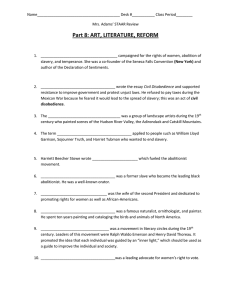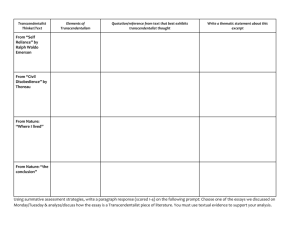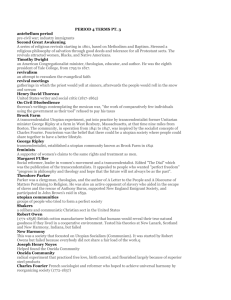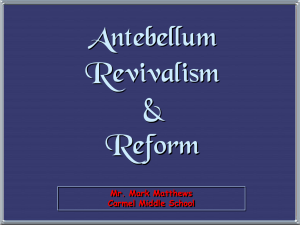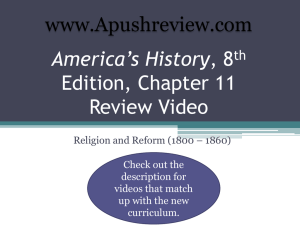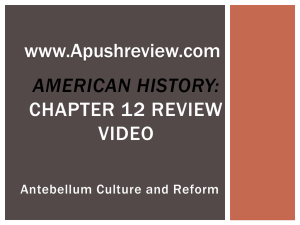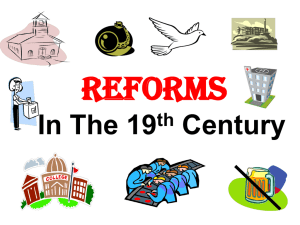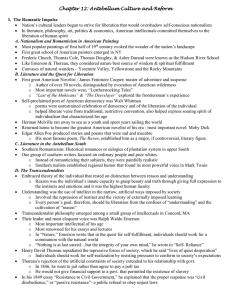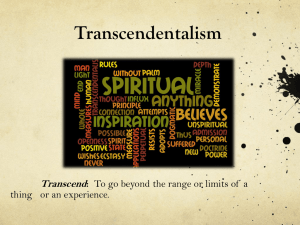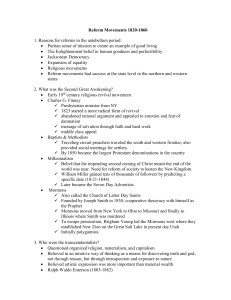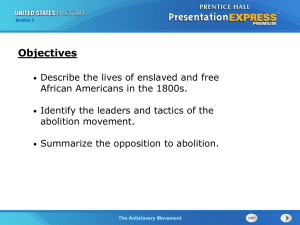AP Review #11 - Cloudfront.net
advertisement
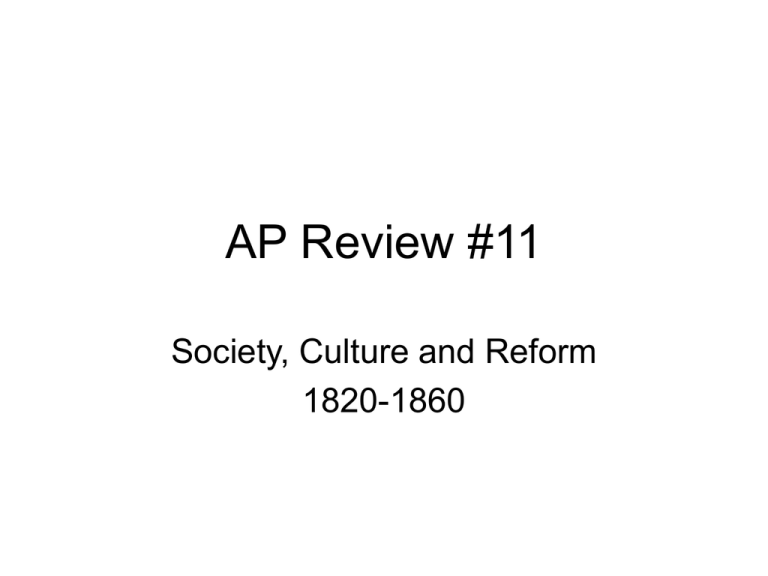
AP Review #11 Society, Culture and Reform 1820-1860 Antebellum Period • The period before the Civil War Second Great Awakening 1790-1835 • Religious movement amongst the educated • Reaction against Enlightenment thinking • Rev. Timothy Dwight of Yale motivated men to become preachers Revivalism • Charles G. Finney in upstate NY • Appealed to emotions and fear • “burned-over district” b/c of the “hell and brimstone” preaching Baptist and Methodists • • • • Peter Cartwright (Methodist) Outdoor revival meetings High number of conversions Baptists and Methodists became largest religious denominations by 1850 Mormons • Joseph Smith 1830 • NY to OH to MO to IL. Smith killed in Illinois • Brigham Young leads them to UT where they prospered • Polygamy Transcendentalists • Emerson and Thoreau • Questioned traditional religion and capitalism • Look for God in nature • Artistic expression over wealth • Supported Antislavery Ralph Waldo Emerson • Popular transcendentalist • Urged Americans to create their own culture instead of imitating Europe’s • Leading critic of slavery and of the Union cause during CW Henry David Thoreau • Leading transcendentalist • Wrote Walden (nature) • Civil Disobedience (protest of the Mexican-American War) • Inspired Gandhi and MLK, Jr. Brook Farm 1841-1849 • George Ripley • Communal farm of transcendentalists • Artistic creativity and innovative educational techniques Shakers 1840s-mid 1900s • Communal living (Utopia) • Common property • Women and men separate (no marriage or sex) New Harmony • Nonreligious • Robert Owen • Utopian socialist community Oneida community 1848-1881 • • • • • John Humphrey Noyes Oneida, NY Social and economic equality Silverware “Free love” Charles Fourier • Fourier Phalanxes • People share work and living arrangements Temperance • • • • • • • Banning of alcohol American Temperance society Alcoholism was a disease Immigrants opposed Slavery will overshadow movement WCTU 18th amendment in 1919 Asylum Movement • Structure and discipline would bring about moral reform • State-supported prisons, mental hospitals, and poorhouses • Dorothea Dix fought for mental hospitals • Thomas Galludet school for the deaf • Dr. Samuel Gridley school for the blind Auburn system • Prison system • Rigid discipline, moral instruction, work programs Public school movement • Fear of the future of the country b/c of poor, illiterate immigrants • Horace Mann • Taught protestant morality in McGuffey Readers – hard work, punctuality, sobriety • Second Great Awakening fueled the growth of private colleges Cult of domesticity • Women as moral leaders in the home and educators of children Seneca Falls Convention (1848) • First women’s rights convention • Declaration of Sentiments • women's rights over shadowed by slavery Abolitionism • American Colonization Society (Monrovia, Liberia) William Lloyd Garrison • • • • American Antislavery Society The Liberator Radical abolitionist movement Immediate abolition of slavery Frederick Douglas • Black abolitionist • The North Star • Sojourner Truth, Harriet Tubman
